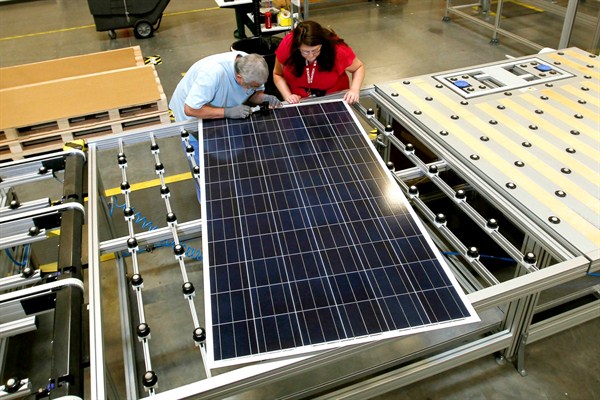In late September, the U.S. International Trade Commission declared that growing imports of solar panels had significantly hurt U.S. manufacturers. The decision could provide the cover for President Donald Trump to make good on his threats to put up trade barriers with China, whose companies are the leading suppliers of solar cells and panels in the United States. In an email interview, Dieter Ernst, a senior fellow at the East-West Center and former adviser to the Organization of Economic Cooperation and Development, discusses the impact of the commission’s ruling, what it means for the U.S. solar industry, and why a trade war is bad for both China and the United States.
WPR: What were the grounds for the U.S. International Trade Commission’s decision, and how do they fit with President Donald Trump’s trade and economic policies?
Dieter Ernst: The U.S. International Trade Commission, or USITC, determined unanimously that increased imports of crystalline silicon photovoltaic cells and modules have caused “serious injury to the domestic industry.” This decision was made under Section 202 of the U.S. Trade Act of 1974, in response to a petition filed by the two largest U.S. solar panel makers, Suniva and SolarWorld Americas, which are both bankrupt largely due to bad management.

